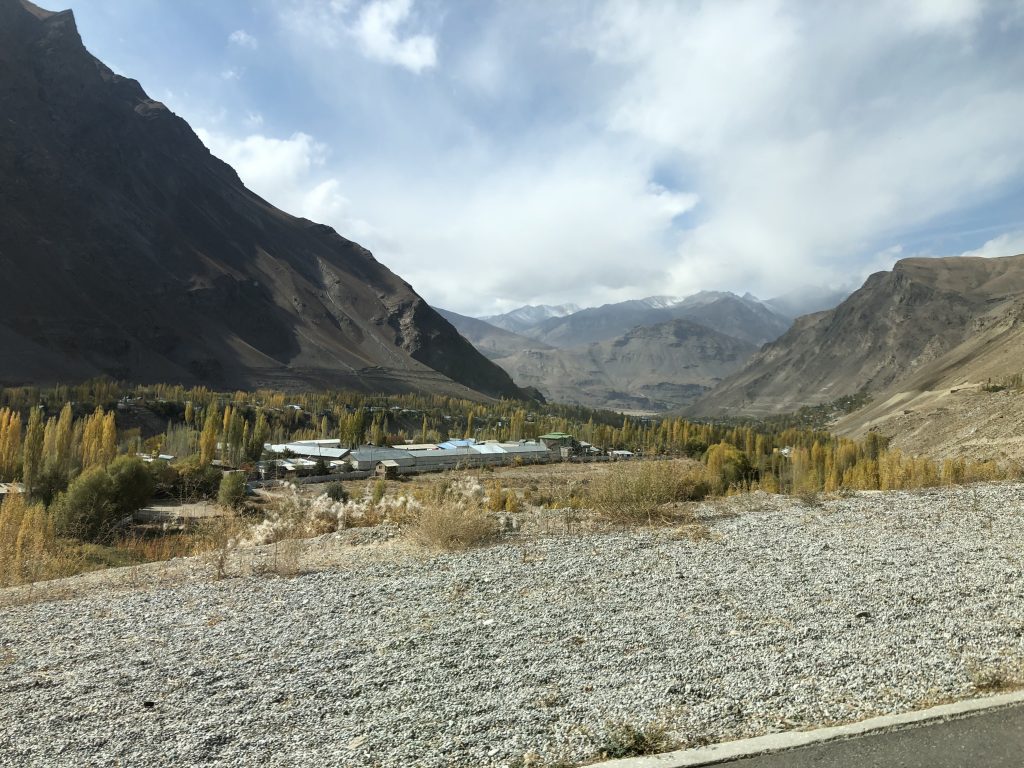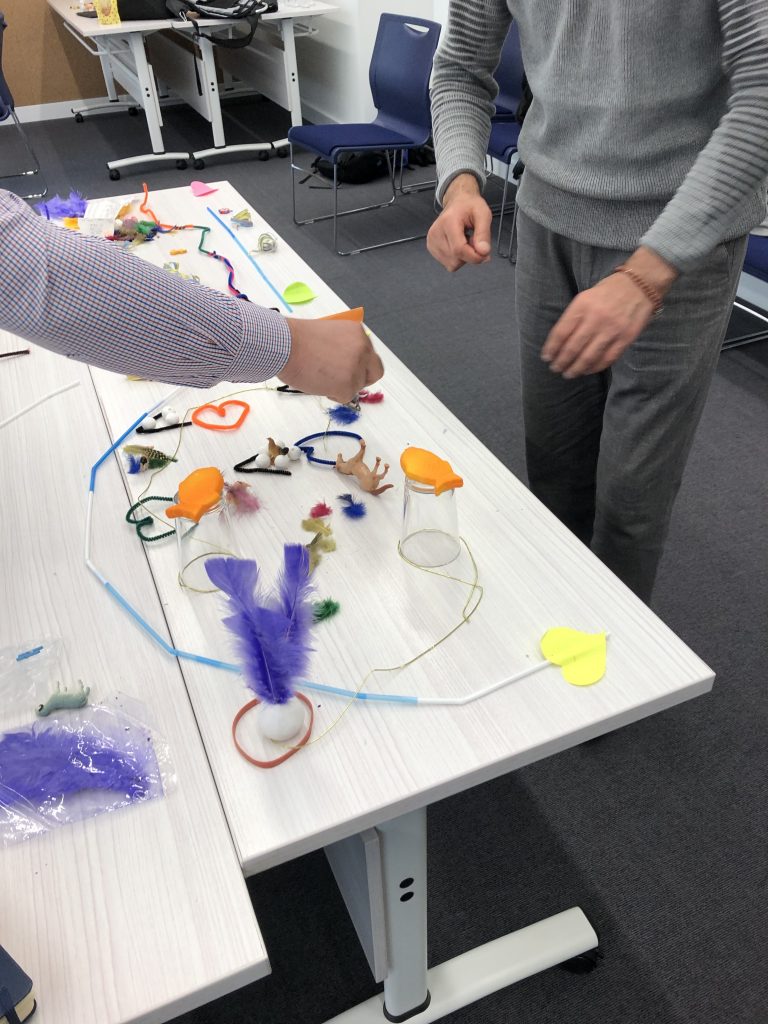Last winter we facilitated a four-day retreat on leadership and agency for a group of programme managers (PMs) from different countries working on a global poverty alleviation programme. The retreat was held in Khorog (Tajikistan), in the heart of the Pamir Mountains. The aim was to equip PMs with the soft skills needed to maintain autonomy, while establishing harmonious and effective working relationships.
We opted for a self-discovery learning journey, based on self-awareness and empathy, using both cognitive and non-cognitive tools. First we spent some time with activities to allow participants to connect with themselves and the environment. The astonishing surroundings helped us all to gain perspective and feel grounded, with the mountains looking after us.

To gain self-awareness, we invited participants to map the system they are working in and position themselves in it. We used different objects and materials to construct a ‘3D map’. This exercise allowed them to observe their position from different angles and identify blind spots, challenges and opportunities not immediately obvious with a rational narrative.
The maps naturally triggered reflections around agency, understood as our individual ability to make a difference regardless (but in awareness) of our position in the system we are part of. They identified different forms of power that affect us and we affect others with. We explored leadership in different real life situations according to position, responsibility, accountability, authority, morality and ethics.

We paid special attention to discerning how leadership is manifested in hierarchical structures, where your position seems to limit your ability to make a difference. We used “managing upwards” to refer to our capacity to successfully convey messages to those in a higher position through holding a sense of leadership and agency.
In order to develop this capacity, we dedicated the last part of the retreat to explore and practice empathy. We used a Non-Violent Communication (NVC) framework, and facilitated various experiential exercises to observe the role of judgement, feelings and needs in developing empathetic relationships. We practiced NVC as a form of empathy through role-playing real life situations where some form of leadership was required.
Months later, we engaged with the participants in an online session – as a learning consolidation check and to nurture the informal community of practice that had emerged from the mountain retreat. Participants shared different personal stories about leadership and agency.
We were struck by how stories of success were systematically linking leadership and agency with a sense of purpose. As one participant said: “when you are clear about why you do what you do, you don’t see problems as obstacles”. Then you are able to make a difference. Then, you are being a leader.
